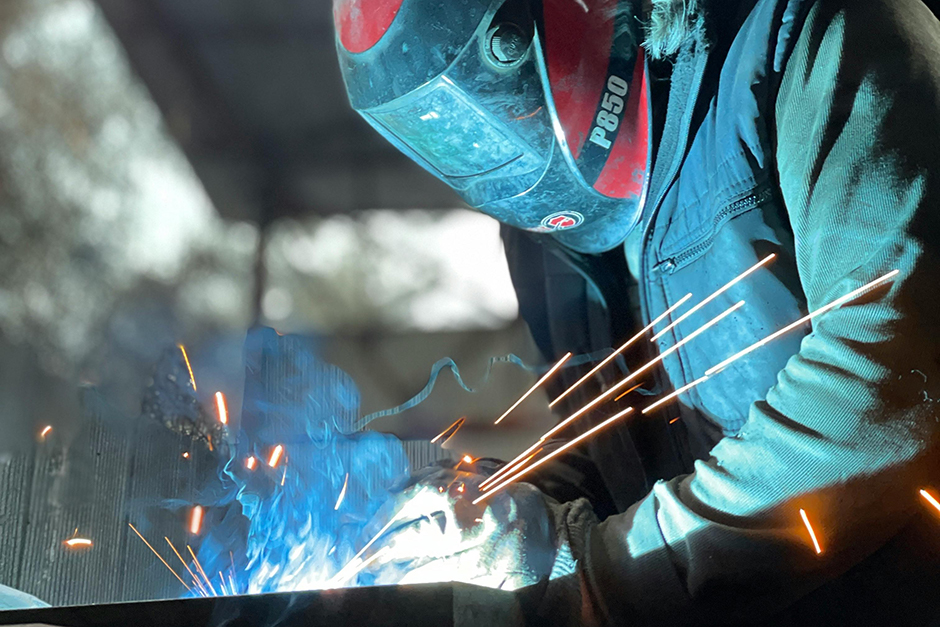Undergraduate Catalog 2024-2025 [ARCHIVED CATALOG]
Physical Therapist Assistant (A.A.S.)
|
|
 Return to: Degrees, Certificates, and Microcredentials Return to: Degrees, Certificates, and Microcredentials
This program is a two-year (five consecutive semesters) program leading to an Associate in Applied Science degree. It is approved by the New York State Education Department, and is fully accredited by the Commission on Accreditation in Physical Therapy Education.
The Physical Therapist Assistant A.A.S. degree will prepare you for employment as a competent entry-level physical therapist assistant. As a Physical Therapist Assistant, you will work under the supervision of a physical therapist utilizing prescribed activities to help patients recover physical function and strength lost through disease, injury or other causes, and to relieve pain and promote healing..
Upon completion of all course requirements, the graduate will be eligible to take the national exam to be able to practice in most states, including New York. The program is specifically designed to prepare qualified Physical Therapist Assistants. It is not designed as a preparatory program for a physical therapy degree. Most states (including New York) require state certification to practice as a Physical Therapist Assistant.
Good Moral Character: An individual’s eligibility for certification may be affected by an existing criminal record. It is the individual responsibility of the student to confirm their eligibility for certification.
Mission Statement
The Onondaga Community College Physical Therapist Assistant program is committed to a high standard of scholarship to provide theory, knowledge, clinical experience, problem-solving skills and strong ethical standards, thus cultivating physical therapist assistants who possess entry-level competence as defined by the American Physical Therapy Association. This program will prepare students to meet standards for state certification, and function as technically competent, caring, responsible and safe physical therapist assistants under the supervision of a physical therapist. It is our philosophy to provide the highest quality academic education in the classroom and lab, along with a variety of clinical experiences to enable our graduates to meet the psychological, social and physical needs of their patients/clients. Graduates of this program will also develop a value of racial, social and cultural diversity, and will acquire an appreciation of lifelong learning.
Program Learning Outcomes
- Graduates of this program will demonstrate safety and competency in cognitive, psychomotor and affective skills, and utilize these skills to apply scientific principles as a means to treat/prevent injury, disease and disabilities.
- Graduates will demonstrate communication competency by effective, accurate and congruent transfer of information between individuals and groups.
- Graduates will demonstrate diversity awareness by understanding the uniqueness of each individual despite differences in race, ethnicity, gender, sexual orientation, age, religious beliefs or disability.
- Graduates will demonstrate technological skills in order to pursue lifelong learning and to provide safe, effective physical therapy interventions.
Admission Requirements
The following admission requirements must be met before applying to the PTA program:
- High School Diploma or its equivalent.
- Completion of one year of high school Biology (NYS regents or equivalent) or college level Biology. This could include BIO 121 (preferred) or transfer equivalent. Note: BIO 171 Anatomy and Physiology I and BIO 172 Anatomy and Physiology II can be used for admission requirements; they can also satisfy requirements for graduation if taken within 7 years of matriculation.
- Completion of a second science. This could include another biology as described in the previous requirement, or one year of high school Chemistry or Physics (NYS regents or equivalent), or college level Chemistry or Physics. This could include CHE 151 (preferred; a lab component is not required), general chemistry or equivalent; PHY 103 or equivalent.
- A grade of 77 or C+ or higher in required courses used to meet the admission requirements.
- Completion of 20 clinical observation hours or service learning work in a physical therapy setting (must be met prior to applying to the PTA program). You may obtain the “Physical Therapist Assistant Program Clinical Observation Form ” and instructions on the OCC PTA program website, to be filled out by the physical therapist you are observing, which serves as verification of this requirement.
- Must be able to perform all of the “Essential Skills” as outlined in this catalog.
- Students will be required to earn CPR certification for Basic Life Support (BLS) Provider from the American Heart Association by the end of the first semester of the PTA program.
Note: You should possess good communication skills, and be in excellent health to meet job demands.
A competitive process is used for admission to the PTA program, with points assigned to specific criteria. Admission will be offered to qualified students in ranked order from highest to lowest, beginning at the review deadlines until all spaces are full. Interested students should complete the academic program change form once all admission requirements are met. Please consult with a School of Health Advisor.
Ranking points will be awarded for:
- College Anatomy & Physiology I
| A = 10 points |
B = 5 points |
- College Anatomy & Physiology II
| A = 10 points |
B = 5 points |
- Performance in non-A&P Biology (Regents HS or college)
| A = 6 points |
B = 3 points |
- Performance in Chemistry (Regents HS or college)
| A = 6 points |
B = 3 points |
- Performance in Physics (Regents HS or college)
| A = 6 points |
B = 3 points |
- Performance in ENG 103 , or its equivalent
- Performance in ENG 104 , or its equivalent
- Performance in PSY 103 , or its equivalent
- Performance in PSY 218 , or its equivalent
- Made wait list last year but did not get accepted.
Applications and corresponding documentation submitted by March 1st will receive full consideration. Applications received after this date will be considered based on the number of seats available in the program for the fall semester.
The Program
The PTA program consists of 21 credits of general education courses and 43 credits of PTA courses which include class, lab and clinical experiences. The New York State regulations require you to have an annual health assessment and to have a health form on file at the College and clinical site prior to beginning any clinical experience. Additional immunizations, such as an annual flu shot, may be required for clinical experiences.
Scheduled clinical assignments cannot accommodate work schedules for those students wishing to hold part-time jobs. PTA courses must be taken in sequence as presented in the curriculum. They are held during weekdays only. Due to the intensity of the program, students are strongly encouraged not to work more than 20 hours per week. For students with child care responsibilities, back-up child care is strongly encouraged, as strict attendance policies affect grades.
Additional Costs
In addition to the regular college expenses of tuition, health program fees, student activity fees, and textbook fees for non-PTA courses, PTA students are financially responsible for the following:
- Physical exams and required immunizations.
- Malpractice insurance: approximately $10 per semester (malpractice insurance is a fee paid to the College to cover students in their functions as Onondaga student PTAs).
- Personal health insurance: varies (neither the College nor your assigned clinical facility assumes any responsibility for student health care costs).
- Textbooks for core PTA courses: approximately $900.
- Uniform and name pin for clinicals: approximately $60.
- Transportation to/from and parking for clinical assignments.
- Room and board for full-time clinicals (where applicable).
- Watch with second hand.
- Goniometer: approximately $25.
- Student membership to APTA: $85/year.
(Fees subject to change)
Essential Skills
A candidate for a Physical Therapist Assistant A.A.S. degree must have the abilities and skills necessary to complete the educational requirements as defined by the American Physical Therapy Association and the state regulatory agencies. The following is a representative list of the essential skills, with or without appropriate accommodation, expected of students enrolled in the PTA program.
- Communication Skills
- Effectively communicate the patient’s progress and mental/physical status to the PT.
- Effectively communicate directions to patients.
- Record accurate, legible progress notes in chart.
- Elicit accurate and pertinent health history/information from the client and chart.
- Accurately and efficiently follow directions.
- Give, receive, understand, and be understood when engaged in relevant written and verbal English and nonverbal feedback.
- Conceptual and Analytical Reasoning
- Apply to collect, interpret and analyze didactic knowledge effectively in the lab and clinical settings.
- Demonstrate the ability to analyze distinct situations and utilize critical thinking in the process of delivering safe and appropriate care to clients.
- Exercise good judgment in problem solving.
- Social Skills, Responsibility & Behavior
- Perform effectively under stress.
- Display flexibility.
- Demonstrate compassion.
- Develop positive and effective relationships with clients, staff, peers, and families.
- Willingly accept constructive criticism and modify behavior appropriately.
- Provide care in a variety of settings to individuals and families without regard to race, creed, color, national origin, religion, ancestry, gender, age, sexual orientation, or disability.
- Physical Strength
- Physically lift an adult in a pivot transfer.
- Demonstrate a two-man lift with an adult.
- Carry out emergency procedures such as patient evacuation and CPR.
- Stand and walk for extended periods of time, and be able to work a 40 hour week.
- Bilateral Dexterity
- Carry out stretching exercises, range of motion and exercise programs such as PNF techniques.
- Adjust crutches/canes and walkers.
- Carry out manual massage and bandaging techniques.
- Set up exercise machines such as traction, Cybex, mechanical lifts, electrical modalities.
- Unilateral Dexterity
- Adjust and fine tune controls on electrical and heat modalities.
- Demonstrate fine motor skills such as activities of daily living and exercise to patients.
- Balance
- Maintain balance during guarding of unstable patients on flat surfaces, inclines or stairs.
- Maintain balance during lifting, transferring, and guarding of unstable patients.
- Observational and Sensory Skills
- Assess pertinent body systems including inspection of skin, color, and odor; take accurate vital signs (respiration, blood pressure, temperature, pulse and oximetry); and assess motor function of the client.
- Detect and interpret calibrations on modalities, sphygmomanometers, computers, and measurement instruments (goniometers, dynamometers).
- Interpret and respond appropriately to equipment used to monitor patients.
- Judge distance, surface, and depth changes for ambulating patients on all surfaces.
- Recognize patient call systems, including timers and emergency signals.
- Touch and be touched by other students, therapists, and patients (e.g. palpation, massage).
Graduation Requirements
The following must be met to nominate for graduation:
- All requirements written in this College catalog for an A.A.S. degree.
- All required PTA, BIO 171 , and BIO 172 courses completed with a grade of C or higher (CR for clinical courses).
- A student will be allowed to repeat PTA, BIO 171 , and BIO 172 courses only once. Students who fail to receive at least a C after two attempts in any one of these courses will lose matriculation in the PTA Program.
- BIO 171 and BIO 172 must have been completed within seven years of matriculation into the program.
- Successful completion of clinical assignments demonstrating to the faculty safe, proficient entry level skills, professional judgment and integrity.
- All PTA students must complete the PTA progtram within three consecutive years of initial admission into the program in order to improve retention of learned skills in contemporary physical therapy practice.
|



 Return to:
Return to: